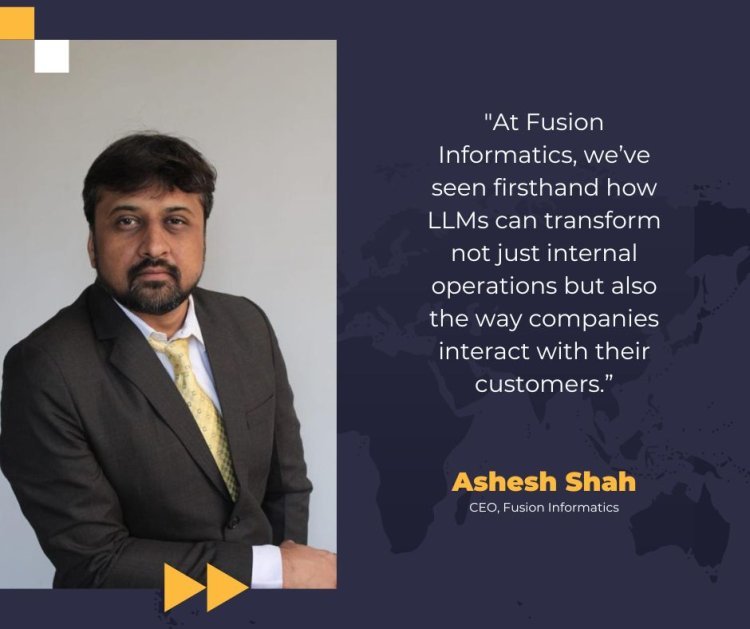Applications of Large Language Models in Business: From Automation to Customer Engagement

In today’s fast-evolving business landscape, large language models (LLMs) like GPT are revolutionizing the way businesses operate, making processes more efficient, and enhancing customer interactions. These AI-driven models are reshaping industries by automating tasks, improving decision-making, and elevating customer engagement. From small businesses to large enterprises, the impact of LLMs is becoming increasingly evident across various sectors.
- Automation of Repetitive Tasks
One of the most significant applications of large language models is the automation of routine, time-consuming tasks. Businesses often spend valuable time on activities such as data entry, report generation, or answering frequently asked questions. LLMs can automate these processes with remarkable accuracy and speed, freeing up employees to focus on more critical, creative work.
For instance, in the financial services sector, LLMs are used to generate detailed reports, assist in compliance checks, and analyze large volumes of data. Similarly, in HR departments, LLMs can automate the screening of resumes and handle preliminary candidate interviews, speeding up recruitment processes.
- Enhanced Customer Support
Customer service is a vital component of any business, and LLMs have transformed how companies handle customer queries and interactions. Chatbots and virtual assistants powered by LLMs provide instant, personalized support to customers, answering questions, resolving issues, and even making product recommendations.
These AI-driven systems can handle customer queries 24/7, ensuring that businesses can provide around-the-clock service without overburdening their human workforce. With LLMs, customer support becomes more efficient, and customers receive faster and more accurate responses, leading to greater satisfaction.
- Streamlined Content Creation
In marketing and communication, content creation can be a labor-intensive process. LLMs simplify this by generating high-quality content at scale. Whether it’s writing product descriptions, generating social media posts, or crafting personalized emails, LLMs can produce relevant and engaging content quickly.
This capability allows marketing teams to focus on strategy while the AI takes care of the content volume. By leveraging LLMs for content creation, businesses can maintain a consistent brand voice and produce targeted material that resonates with their audience.
- Data Analysis and Decision-Making
LLMs excel at processing vast amounts of unstructured data, making them invaluable tools for data analysis and decision-making. Businesses can use LLMs to analyze customer feedback, social media sentiment, market trends, and even internal documents to gain deeper insights.
These insights help businesses make informed decisions, predict market changes, and tailor their strategies to meet consumer demand. With LLMs, decision-makers have access to more comprehensive, real-time data analysis, which is crucial for staying competitive in today’s data-driven market.
- Personalized Customer Engagement
Beyond customer support, LLMs are playing a critical role in personalizing the overall customer experience. By analyzing customer data, preferences, and behavior, LLMs can offer personalized recommendations, targeted marketing messages, and curated experiences that drive engagement and sales.
Retailers, for instance, are using LLMs to recommend products based on a customer’s previous purchases or browsing behavior, significantly enhancing the shopping experience. This level of personalization not only improves customer loyalty but also increases the likelihood of conversions.
What Mr. Ashesh Shah, CEO of Fusion Informatics, Has to Say:
“Large language models are a game-changer for businesses looking to stay ahead in today’s competitive environment. At Fusion Informatics, we’ve seen firsthand how LLMs can transform not just internal operations but also the way companies interact with their customers. From automating time-consuming tasks to offering personalized, real-time customer engagement, the potential of LLMs is vast. We are excited about the future and believe that businesses that embrace these technologies today will be the leaders of tomorrow.”
Conclusion: Unlock the Potential of LLMs for Your Business
Large language models are no longer just theoretical concepts; they are practical tools that businesses can implement today to streamline operations, enhance customer engagement, and boost productivity. As AI continues to advance, the potential for LLMs to revolutionize more aspects of business will only grow.
Call to Action:
Ready to leverage the power of large language models in your business? Contact us today to explore how our AI-driven solutions can drive automation, improve customer engagement, and deliver lasting results!
For more detail, visit www.fusioninformatics.com


















